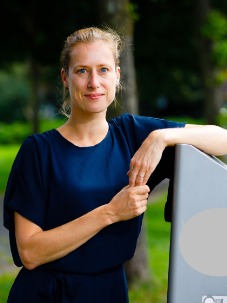Opinion | No meat on your plate for a day? Yes, that helps!

During the National Week Without Meat and Dairy, (6 - 12 March) there is a call to avoid eating animal products. But will that make a difference? Can you help save the world by skipping the occasional steak? Ellen van der Werff, assistant professor of Environmental Psychology at the University of Groningen, says you can.
Written down by Marrit Wouda, Corporate Communicatie UG
Double impact
Ellen van der Werff: ‘I can give a crystal-clear answer to this: yes, it will make a difference if you stop eating meat. Meat and dairy have a major impact on the environment and we have a direct say in what we eat. Even if you, on your own, choose not to eat meat, it has an impact. Your choices have a direct impact on reducing greenhouse gas emissions and water use. No matter how small that impact is, it counts. But most importantly: we don’t live in a vacuum. Your behaviour also affects those around you. When your family members or friends see that you choose not to eat meat temporarily or permanently, you might inspire them to try it too. That way, your vegetarian or vegan meal will have twice the impact.’
Goody soy-shoes
‘Eating meat is deeply ingrained in our culture and it also has a big social component: we often eat with our family or friends. So it’s no wonder that you may feel uncomfortable when you constantly have to ask whether your new plant-based diet can be taken into account. Apart from that, choosing not to consume meat or dairy products is often a moral decision. Your choice to no longer eat meat is taken by many people as a kind of signal that you think it is not okay for them to still be eating meat. That triggers something and people can feel attacked by it, as research conducted by my colleague Jan Willem Bolderdijk has shown. He concluded that people do not want to be seen as antisocial, but neither do they want to be seen as a goody two-shoes.’
Lots of small steps
‘It’s very easy to think “in how far do I contribute to the problem in the end, it would be a drop in the ocean if I change my behaviour!”. However, that primarily seems to be a strategy we use to not have to change our behaviour. When it comes to climate change, there is no certain point we can reach where it all stops making a difference what you do. Obviously, if we reach a certain level of emissions we are in huge trouble, but every gram of CO2 not emitted and every litre of water not used counts. So, if you can contribute to that, it does make a difference. Eating less meat may not be the easiest or most convenient option, but a very large group of people do it, precisely for this reason: it matters and you contribute to reducing the problem.’
More news
-
15 September 2025
Successful visit to the UG by Rector of Institut Teknologi Bandung
